EHMA 2020 Conference Programme
Check out our programme of events below:
Day 1 – Tuesday, 17 November 2020
Download and explore the Conference App, set up your profile and get ready for #EHMA2020
Opening Session – Health Management: realigning systems, contexts and players
Welcome to #EHMA2020!
The EHMA Conference is the place for today’s and tomorrow’s healthcare leaders to learn and share experiences through interactive workshops, scientific presentations, and engaging debates. The Conference brings together Europe’s health managers to spread knowledge on innovative practices and excellent delivery of healthcare to ensure the health and well-being for Europe’s citizens and communities.
Institutional greetings:
- Prof. Federico Lega, outgoing President, EHMA
For the EHMA 2020 Co-hosts:
- Prof. Dr. Kees Ahaus, Erasmus School of Health Policy & Management
- Dr. Ernst Kuipers, Erasmus Medical Center
- Col. Henk Van der Wal, Ministry of Defence of The Netherlands
For the European Commission:
- Ms. Maya Matthews, Head of Unit Performance of Health Systems, Directorate-General Health and Food Safety (DG SANTE)
Alternative Payment Methods: Showcasing the Dutch Experiences
Hosted by Erasmus University Rotterdam
In the Dutch healthcare system of regulated market competition, competing health insurers contract with health providers in order to secure healthcare services for their insurees against the best possible conditions (quality, cost, accessibility). In order to accomplish these objectives, insurers experiment with alternative payment methods, such as bundled payments, shared savings agreements, and value-based payments. In this session, the speakers will share their experiences with alternative payment methods in the Dutch system. We will discuss these experiences from the perspectives of regulators and advisory bodies (NZa, RIVM), from health insurers (VGZ, Menzis) and from the perspective of scientific research.
Speakers:
- Dr. Misja Mikkers, Professor at Tilburg University & Chief Economist at NZa, The Netherlands
- Dr. Jeroen Struijs, Associate Professor at Leiden University Medical Center & Senior Researcher at RIVM, The Netherlands
- Marit Tanke, MD, PhD, Director of Strategy and Innovation at Coöperatie VGZ, The Netherlands
- Dr. Arthur Hayen, Senior Intelligence Analist at Menzis & Senior Lecturer at Leiden University Medical Center, The Netherlands
- Dr. Frank Eijkenaar, Associate Professor at Erasmus School of Health Policy & Management, Erasmus University Rotterdam, The Netherlands
Moderator:
- Prof. Erik van Raaij, Professor at Rotterdam School of Management and Erasmus School of Health Policy & Management, Erasmus University Rotterdam, The Netherlands
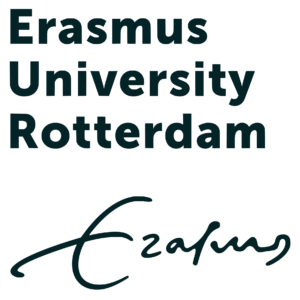
Value-Based Healthcare: What, How and Why
Hosted by University of Groningen
In this session, we will discuss the topic of Value-Based Healthcare (VBHC) from various perspectives.
During the session, we will provide several ‘provocative’ statements to kick-start the discussion. We aim for an open discussion where both panel members and the audience are free to express their ideas and opinions. Ultimately, this session should lead to a better understanding of what value-based healthcare is in the European setting, and how and why value-based healthcare is adopted by European healthcare providers.
Speakers:
- Dr. Esther Metting, Assistant Professor at the University of Groningen, The Netherlands
- Dr. Oskar Roemeling, Assistant Professor at the University of Groningen, The Netherlands
- Ewoud Stapersma, MSc, Project Leader at Wilhelmina Hospital, The Netherlands
- Dr. Marjolein van Offenbeek, Assistant Professor at the University of Groningen, The Netherlands
- Daan Westra, MSc., Assistant Professor at Maastricht University, The Netherlands
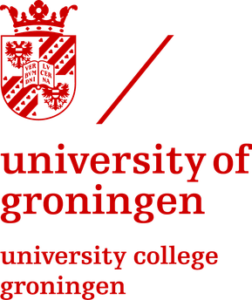
Horizon 2030: seven universal trends for future care
Hosted by NVTZ
During the session, we will have an interactive discussion on the seven universal trends for future care. In non-specific order, topics that will be addressed are: co-creation, right scale, living longer at home, less is more, fair and balanced remuneration, person-centred and positive health.
Speakers:
- Marius Buiting, Director, NVTZ, The Netherlands
- Matthijs Zwier, Quartermaker, NVTZ, The Netherlands

Vaccination and health systems sustainability: how to prioritise vaccines investment in a post-COVID world
Hosted by Sanofi Pasteur
Preventative approaches are fundamental in reducing the burden of preventable diseases. Historically European health systems have effectively prevented the spread of diseases and save costs through vaccination and immunisation programs. Nevertheless, more efforts are needed to systematically increase the reach of vaccination benefits across all communities throughout the EU Member States.
Continuing the conversation around the role of vaccination on promoting sustainable health systems and securing sufficient budget allocation to vaccination is paramount to reaching this goal. This session will identify best practices in budgeting for vaccination and highlight a case study on the impacts of increasing national vaccination budgetary allocation.
Speakers:
- Dr. Cristian-Silviu Buşoi, Member of the European Parliament, Romania
- Francesca Colombo, M.Sc., Head of the Health Division at the Organisation for Economic Co-operation and Development, France
- Dr. Dimitra Panteli, Programme Manager, European Observatory on Health Systems and Policies, Belgium
- Prof. Carlo Signorelli, MD, PhD, Professor of Hygiene and Public Health at the University of Parma and at the University Vita-Salute San Raffaele of Milan, Italy
- Tim Wilsdon, MSc, Vice-President Charles River Associates (CRA), UK
Moderator:
- Silvia Romeo, Project Manager, Young Coalition for Prevention and Vaccination, ThinkYoung, Belgium

Explore the platform, connect with participants and check out the posters
Leading healthcare in a challenging environment
Lessons learnt from the COVID-19 crisis and the role of health management in the new normal
How is the COVID-19 pandemic shaping the future of health management? European healthcare has been put to the test by the COVID-19 crisis as never before. Already strained health systems are experiencing even more pressure and new vulnerabilities are surfacing. National health systems, hospitals, Governments and the entire health workforce have worked tirelessly to deliver emergency responses in a forever changing environment, and with many uncertainties. Although the initial shock is passing, the barrage of health management challenges are only increasing.
What are the next phases to ensure accessible and quality healthcare for everyone? How can we move out of this emergency response into a more stable phase? And what will health management look like in the post-COVID scenarios?
Keynote:
- Dr. Natasha Azzopardi-Muscat, Director of the Division of Country Health Policies and Systems, WHO Europe
Speakers:
- Dr. Liisa Maria Voipio-Pulkki, Director General of Strategic Affairs and Chief Medical Officer at the Ministry of Social Affairs and Health, Finland
- Dr. Aleksandra Torbica, Director, Centre for Research on Health and Social Care Management (CERGAS) & Special Advisor to the Chair of the WHO Pan-European Commission on Health and Sustainable Development, Italy
- Dr. Marjolein Tasche, Board member SFVG hospital and Board member Netherlands Hospital Union
Moderator:
- George Valiotis, Interim Executive Director, EHMA
Environmental sustainability in the health sector: a shared ambition and collective efforts
Hosted by MSD
The session will touch upon the topic of environmental sustainability in health systems, starting with the existing regulatory processes in place as well as current policy discussions down to the concrete implementation and actions by all stakeholders involved: industry, healthcare organisations, healthcare professionals, patients. Particular attention will be given to Antimicrobial Resistance (AMR), described by the World Health Organisation (WHO) as “an increasingly serious threat to global public health that requires action across all government sectors and society”.
Panel Discussion on ‘The Green Deal as the EU approach to implement the SDGs: how can the health – and pharma – sector contribute?’
- Dr. Kirsty Reid, Director Science Policy at EFPIA, Belgium
- Mr. Ferenc Marofka – DG SANTE, European Commission
- Ms. Jess McNamara, Vice-President of European Affairs
at EPSA – European Pharmaceutical Students Association, Belgium
Panel Discussion on ‘Fighting against AMR: taking a science based and global approach to reduce the impact of antimicrobials on the environment’
- Dr Aimee Murray, NERC Innovation Fellow, Environment and Sustainability Institute, University of Exeter, UK
- Mr. Kawaldip Sehmi, Chief Executive Officer, International Alliance of Patients’ Organisations (IAPO), UK
- Joan Griffith Tell, PhD, Director of Occupational and Environmental Health Sciences, Corporate Product Stewardship and Science Group of Global Safety and the Environment, MSD, USA
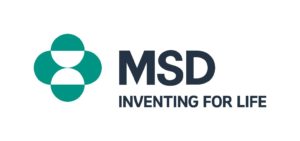
Resilient health systems: evidence from the State of Health in the EU Country profiles
The idea of resilient health systems has been gaining traction among policymakers and is now particularly cogent in the wake of the challenges that countries are facing in addressing the COVID-19 pandemic. In this workshop, we will present the resilience framework that was first developed three years ago and applied in the State of Health in the EU (SoHEU) Country Profiles. We will also discuss subsequent new work on health system resilience that is being undertaken by the SoHEU partners.
The Country Profiles are a joint initiative between the European Commission, the OECD, and the European Observatory on Health Systems and Policies. They assess a country’s health system, looking at its effectiveness, accessibility, and resilience. During the workshop the presenters will briefly introduce the SoHEU cycle and then explain that the resilience framework used in the 2019 Profiles adopts a broader definition of resilience, covering the ability to respond to extreme shocks as well as measures to address more predictable and chronic health system strains, such as population ageing or multimorbidity. The framework consists of three dimensions, and their associated policy entry points and a list of indicators and policy measures, as building blocks for fostering resilience. Based on this framework, we will present the results of an audit of the most common health system resilience strategies and challenges identified from the 30 Country Profiles published in 2019.
A Panel discussion will follow, showcasing a variety of new work on resilience being done by the European Commission, OECD, and the Observatory. These new contributions to understanding resilience take into account the impact of, and country responses to, the Covid-19 pandemic, the most recent significant shock to health systems in Europe and globally. Panellists will highlight how policy-relevant elements of this new work can feed into improving the analysis and the evidence-base generated in the next editions of the Country Profiles for 2021.
Speakers:
- Guillaume Dedet, OECD
- Josep Figueras, European Observatory on Health Systems and Policies
- Anna Maresso, European Observatory on Health Systems and Policies
- Federico Pratellesi, European Commission, Directorate General SANTE
- Anna Sagan, European Observatory on Health Systems and Policies
Moderator:
- Ewout van Ginneken, European Observatory on Health Systems and Policies
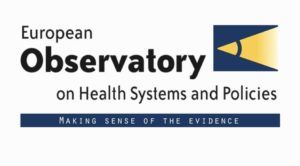
A fresh look at hospitals: where do they fit in healthcare systems?
Hosted by Radboudumc
Health and healthcare systems in European countries and elsewhere are perpetually stressed – with rising demand and technical capabilities, yet always limited available resources. Within health systems, the institutions and facilities called ‘hospitals’ appear dominant, both in their delivery capability and costs incurred. Is this a problem? Should care delivery and resources be redirected to the primary level, and would good public health measures remove the need for such extensive health repair functions anyway? A group of authors from government, academia, finance and consultancy has recently completed a book offering some fresh thoughts on this (A. Durán & S. Wright (eds.), c, Palgrave Macmillan, 2020).
What are hospitals?
The book at its heart is a polemic, seeking to reframe policy discussions on hospitals. It sets out a construct which links social concepts (governance), healthcare ones (models of care) and economic ones (business models). In this view, healthcare services turn expensive economic resources – people, buildings/equipment, energy, materials – into care. Hospitals concentrate the use and cost of these resources, and are characterised by their preponderant endowment of physical and human capital. Hospitals choose, or are assigned, certain parts of care packages within those of the wider healthcare system. They are organised to do this via implicit or explicit business models which, despite casual reasoning, may or may not duly get disrupted. These business models necessarily incorporate care models – the physical processes that patients follow, inside and outside the walls. The activity needs to be governed, far beyond just management. There are intimate connections between the proposed framework, and ownership types and payment mechanisms. We do recognise, however, that real-world systems are messy, dependent on context, and very often robust against reform.
What next?
There is widespread confusion in the health policy community, over even how to define what a hospital is. Often, definition is by means of attributes – arguments from correlation (“it is where the doctors are”) – whereas it should be a question of functions. More importantly, what is the “capacity” of a hospital? It is not measured by single parameters such as bed numbers, even if we all do it, but rather by the ability to do work within its system. Further, without being able to rigorously measure capacity versus demand for outcomes, how can we know how much to build or to maintain, or where, or of what type, or with what spare buffer (c.f. Covid-19)? This is a system modelling problem, and health policy analysis needs to develop ways of doing it.
Speakers:
- Dr. Antonio Durán, CEO, AllDMhealth, Spain
- Prof. Dr. Patrick Jeurissen, Professor, Radboud University Medical School & Science Officer of the Ministry of Health, Welfare and Sports of The Netherlands, The Netherlands
- Dr. Stephen Wright, Independent Consultant & Honorary Professor, University College London, UK
Moderator:
- Laura Cande, Policy and Project Consultant at EHMA

Abstract Session: Efficiency & effectiveness
Conference sub-theme: Systems and organisational governance
Abstract to be presented during the session:
- How do healthcare providers interpret and use national audit data for improvement
Dr Grazia Antonacci, Imperial College London, London, United Kingdom; National Institute of Health Research – Applied Research Collaboration North-West London, London, United Kingdom. - Setting up innovative housing projects for older people in a highly regulated environment: The institutional work of rebellious managers
Dr Marianne van Bochove, Erasmus School of Health Policy & Management, Rotterdam, The Netherlands. - Observance of implementing the financial and targeting agreement between Vienna General Hospital and Medical University of Vienna with an innovative monitoring system (2016-2024) – results after the third reporting year
MMag Andrea Schweiger, Karl Landsteiner Society, Institute for Hospital Organisation, Vienna, Austria
Abstract Session: Digital Transformation
Conference sub-theme: Digital Transformation
Abstract to be presented during the session:
- vCARE – Rehabilitation for Secondary Prevention based on Virtual Coaching
Dr Massimo Caprino, Casa di Cura Privata del Policlinico, Milan, Italy - Introducing Acute Kidney Injury alerts and electronic fluids prescribing systems in a hospital setting to improve patient outcomes
Dr Panos Michael, Princess Alexandra Hospital, Harlow, United Kingdom - The human side of digital transformation: Empirical evidence from the Austrian hospital sector
Dr Arleta Franczukowska, Danube University Krems, Krems/Donau, Austria - Social assistive robots for elderly
Dr Isabelle Fabbricotti, Erasmus School of Health Policy & Management, Rotterdam, The Netherlands - Integrated personalized care for patients with advanced chronic diseases to improve health and quality of life (ADLIFE Project)
Mrs Dolores Verdoy, Kronikgune, Barakaldo, Spain
Moderated by Dr. Elly Breedveld, Director at Stichting Perspekt, The Netherlands
Abstract Session: Integration
Conference sub-theme: Integration
Abstract to be presented during the session:
- A values framework for integrated health services: a quantitative European study
Mr Nick Zonneveld, Vilans, centre of excellence for long-term and social care, Utrecht, The Netherlands; Tilburg University / TIAS School for Business & Society, Tilburg, The Netherlands - Integrated Healthcare and Social Welfare for 200 000 inhabitants – Case Päijät-Häme
Mr Olli Tolkki, Vice President, Nordic Healthcare Group, Helsinki, Finland - Facilitating and constraining influences of an Electronic Health Record on collaboration among medical specialities
Dr Marjolein Van Offenbeek, University of Groningen, Groningen, The Netherlands - The impact of payment models on network performance: a systematic scoping review of structure, process and outcome measures
Mr Thomas Reindersma, MSc, Erasmus School of Health Policy & Management, Rotterdam, The Netherlands - The burden of breaking down silos to build teams
Dr Odessa Dariel, EHESP, Paris, France - Change-oriented organisational citizenship as a key factor in promoting client-safety in service integration – health and social care professionals as undervalued advocates?
Sanna Laulainen, Acting Professor, University of Eastern Finland, Finland
Moderated by Dr. Axel Kaehne, Reader Health Services Research, Medical School, Edge Hill University, UK
Abstract Session: COVID-19 & Health Management
Conference sub-theme: COVID-19 & Health Management
Abstract to be presented during the session:
- Health Care Crisis and the Primary Health Care Supply: Survey for General Practitioners and Primary Care Physicians during COVID-19 in Austria
Dr Alexander Braun, University of Applied Sciences Krems, Krems, Austria - Uncertainty work in an emerging pandemic: an ethnography of healthcare
management in a Dutch university hospital amidst the start of the COVID-19
pandemic.
Dr Bert de Graaff, Erasmus University Rotterdam, Rotterdam, The Netherlands. - The advantages of being in control of medical technology during times of crises
Ir René Drost, NAMCO, The Hague, The Netherlands - Leadership in the psychiatric services in the era of COVID-19
Ms Elina Laukka, MSc, Finnish Institute for Health and Welfare, Helsinki, Finland
Moderated by Prof. Dr. Kees Ahaus, Erasmus School of Health Policy & Management
BOOK LAUNCH – Everything you always wanted to know about European Union health policies but were afraid to ask
Hosted by European Observatory on Health Systems and Policies
What does the European Union mean for health? What can it mean for health?
The second edition of the book ‘Everything you always wanted to know about European Union health policies but were afraid to ask’ answers these questions. It provides a broad review and analysis of European Union public health policies to mid-2019. It begins by explaining the basic politics of European integration and European policy-making in health, including the basic question of how the European Union came to have a health policy and what that policy does. Thereafter, it moves on to the three faces of European Union health policy.
Join representatives of the European Observatory on Health Systems and Policies for this book launch and enjoy a virtual drink with the EHMA 2020 attendees.
Speakers:
- Scott L. Greer, PhD, University of Michigan, USA; European Observatory of Health Systems and Policies, Belgium
- Sarah D. Rozenblum, BA, MPA, University of Michigan, USA
Facilitator:
- Dr. Matthias Wismar, European Observatory of Health Systems and Policies, Belgium

Day 2 – Wednesday, 18 November 2020
Enjoy meditation, yoga practice and functional training
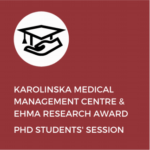 Abstracts to be presented during the session:
Abstracts to be presented during the session:
- Working Alone, Together: Towards Collective Entrepreneurship-as-Practice
Dr Nour Alrabie, Université Toulouse Capitole, Toulouse, France - “I live in an ethical dilemma: I want to give patients the best medicine here, but I also need to keep this place financially in balance”. Dual agency in hospitals: how do managers and physicians reconcile between financial and clinical considerations in Germany and Israel?
Ms Ruth Waitzberg, Myers-JDC-Brookdale Institute, Jerusalem, Israel - Citizen participation: bargaining over boundaries in the organisation of care services
MSc Ludo Glimmerveen, Vrije Universiteit, Amsterdam, The Netherlands - Built to order: patient profiling to tailor type 2 diabetes care
Dorijn Hertroijs, Maastricht University, Maastricht, The Netherlands
Moderated by Prof. Mats Brommels, MD, PhD, Medical Management Centre, Karolinska Institutet
You can read the abstracts here.
Abstract Session: Systems and Organisational Governance
Conference sub-theme: Systems and Organisational Governance
Abstract to be presented during the session:
- How to achieve better quality and more sustainable healthcare – at lower cost
Dr Gaynor Whyles, Director of JERA Consulting, UK; EcoQUIP+ project partner - Building sustainable and comprehensive care Dudley ICP: leading for the future – the Good Governance Institute and Dudley CCG
Mr Harry Turner
Dudley ICP NHS Trust, United Kingdom. - (Re)structuring hospitals – Developing a typology of hospital design and identifying the rationale behind these
Mr Dr Jeroen van Wijngaarden, Erasmus School of Health Policy and Management, The Netherlands - Improving Access to Psychological Therapies
Mr Andrew Walton, Connect Health, United Kingdom - Users’ perspectives on non-clinical quality of care in public and private primary healthcare in Albania
Jonila Gabrani, PhD Candidate
Swiss Tropical and Public Health Institute, Switzerland; University of Basel, Switzerland.
Moderated by Dr. Alexandre Lourenco, President at Portuguese Association of Hospital Managers (APAH), Portugal
Abstract Session: Personalisation
Conference sub-theme: Personalisation
Abstract to be presented during the session:
- Towards responsive law in changing welfare states: the route to more personalized services?
Dr Lieke Oldenhof, Erasmus University Rotterdam, The Netherlands - The MULTI-ACT project: enabling multi-stakeholder, mission-oriented research & innovation for improved health care
Prof. Giancarlo Comi, European Charcot Foundation, Italy. - Relationships of self-management abilities to loneliness among older people: a cross-sectional study
Prof Dr Anna Petra Nieboer, Erasmus University Rotterdam, The Netherlands. - Primary care professionals’ experiences with care delivery to high-need, high-cost, patients: a qualitative study
R.G.M. Smeets, MSc, Department of Health Services Research, Care and Public Health Research Institute (CAPHRI), Faculty of Health, Medicine and Life Sciences, The Netherlands
Moderated by Dr. Elly Breedveld, Director at Stichting Perspekt, The Netherlands
Improving healthcare quality in Europe – how can we align different strategies?
Quality of care is one of the most frequently quoted principles of health policy, and a priority on the policy agenda at different levels. However, the understanding of the term and what it encompasses varies. What is more, evidence on the effectiveness and cost-effectiveness of different quality strategies is not always readily available for policy-makers, who have to struggle with prioritizing initiatives for investment.
The European Observatory on Health Systems and Policies in collaboration with the OECD carried out a comprehensive study to bridge this gap. The study deals with the interpretation of health care quality and the evidence on selected strategies aiming to assure or improve it. More than 40 authors from 15 countries were involved in the study, which can be found here.
This session presents the analytical framework, exemplary findings for selected strategies and conclusions from this work.
This session aims to provide participants with
- insight into the multidimensional concept of quality of care (and its relation to health system performance) and a comprehensive framework for looking at different quality strategies;
- the tools to understand the evidence on the effectiveness, cost-effectiveness and implementation particularities of public reporting and pay for quality (P4Q) mechanisms, with a focus on the European context;
- knowledge about the interrelations between different strategies for assuring and improving quality of care and how they can fit together into an overall strategic framework.
Speakers:
- Reinhard Busse, Technische Universität Berlin and European Observatory on Health Systems and Policies
- Mirella Cacace, Katholische Hochschule Freiburg
- Dimitra Panteli, European Observatory on Health Systems and Policies
- Wilm Quentin, Technische Universität Berlin
Moderator:
- Matthias Wismar, European Observatory on Health Systems and Policies

Managing sustainable and resilient healthcare systems
Strategies to facilitate the response to increasing healthcare needs
When health systems are unable to respond to healthcare needs appropriately and efficiently, people – and even entire countries – can be left vulnerable. What do health systems need now to be resilient and sustainable?
European health systems have already been facing growing challenges as they try to address ageing populations, multi-morbidities, and chronic diseases, while also balancing increased costs of healthcare and shortages in the workforce.
Managing healthcare systems that are sustainable and resilient requires adaptability to fast-changing environments, making the best use of limited resources, and addressing growing health demands providing better and safer care for all. Healthcare leaders must show a deep knowledge of the pre-existing context and strategic thinking and adopt novel approaches that are forward-looking, inclusive, and able to raise widespread consensus.
Setting the Scene:
- Cees Smit, Patient Advocate, Dutch Patient Alliance for Rare and Genetic Diseases, The Netherlands
Speakers:
- Dr. Josep Figueras, Director, European Observatory on Health Systems and Policies, Belgium
- Prof. Dr. Mirella Minkman, CEO of Vilans, the National center of Expertise in long term care; Professor Innovation of governance of integrated care, University of Tilburg; Member of the Board of the International Foundation for Integrated Care, The Netherlands
- Marzena Nelken, Board Member of the European Patients Forum; Board Member of the Federation of Polish Patients, Poland
- Prof. Dr. Kim Putters, Director of the Social and Cultural Planning Office, The Netherlands
- Lill Sverresdatter Larsen, President of the Norwegian Nurses Organisation, Norway
Moderator:
- George Valiotis, Interim Executive Director, EHMA
Explore the platform, connect with participants and check out the posters
AI transforming Cardiovascular Care
Hosted by Health First Europe
Cardiovascular disease (CVD), despite the significant advances in the diagnosis and treatments, still represents the leading cause of morbidity and mortality worldwide. In the EU alone, CVD causes over 1.8 million deaths each year and accounts for 37% of all deaths in the EU. Each year, there are over 6.1 million new cases of CVD, totalling to almost 49 million people living with CVD in the EU. This amount has increased over the past 30 years, making CVD a heavy burden.
The introduction of artificial intelligence (AI) has the potential to cardiovascular disease management and care. AI techniques such as machine learning and deep learning can also improve medical knowledge due to the increase of the volume and complexity of the data, unlocking clinically relevant information. Likewise, the use of emerging communication and information technologies is becoming pivotal to create a pervasive healthcare service through which elderly and chronic disease patients can receive medical care at their home, reducing hospitalisations and improving quality of life.
Within the framework of the My City-Lab project – an ambitious project financed by the European Regional Development Fund (ERDF) to improve ambulatory care of chronic patients through innovative diagnostic solutions and digital tools – this workshop aims to identify and discuss systematic changes to improve and optimise CDV outcomes through AI.
The debate will highlight how AI can support the screening and therefore prevention of cardiovascular diseases (CVDs), by exploring what are the benefits it can offer to patients, what are the main barriers AI encounters on its application and what might be the risks of its implementation for patients. Additionally, we will further discuss how EU countries could boost the implementation of AI in healthcare systems for CVD care and what are the strategies already in place for screening CVD by means of AI to ensure the quality of care and patient safety.
Speakers:
- Maria Carvalho, MEP and Co-Chair of the MEP Heart Group
- Prof. Alan Fraser, European Society of Cardiology
- Birgit Beger, European Heart Network
- Ed Harding, The Heart Failure Policy Network
- Dr. Erik R. Ranschaert, ETZ hospital
Moderator:
- Prof. Damien Gruson, My City-Lab; Saint Luc Hospital; Member of the Expert Panel on Effective Ways of Investing in Health of the European Commission
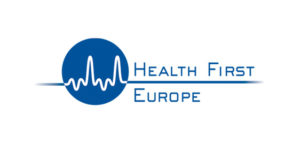
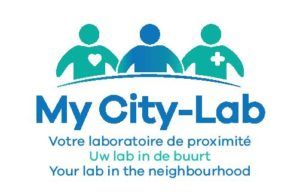
![]()
Value-based management of healthcare organisations
Hosted by Nordic Healthcare Group
This session will focus on what Value-Based Healthcare means on an organisational level, what kind of changes it requires, and what kind of support healthcare organizations need in implementing it. During the session, some case examples and group exercises based on experiences on implementation projects will also be discussed.
Speakers:
- Paulus Torkki, Senior Partner, Nordic Healthcare Group, Finland
- Riikka-Leena Leskelä, Research Director, Nordic Healthcare Group, Finland
- Laura Pitkänen, Senior Advisor, Nordic Healthcare Group, Finland
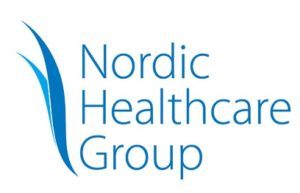
Digitalisation & AI in healthcare
Hosted by Philips
The ever-rising demand for care puts healthcare systems under increased pressure to deliver better care to more people at lower cost. In this context, physicians, nurses and support staff are juggling the challenges of patient care with increased administration, while managers deal with staffing issues and increasing pressure to reduce costs. Those working in healthcare face professional and personal pressure, currently exacerbated by the pandemic. We cannot afford for these talented professionals to become disengaged or we risk losing their skills and commitment to the sector and patients.
How can technology help to transform health delivery, improve patient care, alleviate pressure on medical staff and provide them with better work satisfaction?
This Oxford-style debate will allow participants to share their views on the potential and shortcomings of data and AI-driven solutions in healthcare, reflecting on why the uptake has been slow to date, and defining who should do what to unlock the potential of data and AI innovation in health sector.
Speakers:
- Mr. Michele Calabrò, Policy Adviser at the European Patients’ Forum, Belgium
- Ricardo Castanheira, Counselor Digital-Telecom Coordinator, Permanent Representation of Portugal to the European Union
- Dr. Jan Kimpen, MD, PhD, Chief Medical Officer, Philips, The Netherlands
- Antanas Montvila, MD, Vice-president, European Junior Doctors Association, Lithuania
- Andrzej Rys, MD, Director of the Health Systems & Products, DG SANTE, European Commission, Belgium
- Dr. Kristine Sørensen, Member of the Advisory Group at the European Health Futures Forum (EHFF), Denmark
Moderator:
- Dr. Petra Wilson, Managing Director and CEO, Health Connect Partners, Belgium

Implementing Integrated Care: a guidebook for managers
Henk Nies and Axel Kaehne recently edited a book for managers on how to implement integrated care. This session will take up some of the main themes contained in this book, asking our co-authors to reflect on their research and experience to write for managers. The session will deal with the values of care integration, the relationship between digital technology and integration, social aspects of integrating as well as how to finance integrated care. We will also reflect on the difficulties of writing for managers, and how to make academic research relevant to a health management readership. Our publishers, Emerald, will also attend the session and tell us more about publication opportunities with them and EHMA. Come and join us as we explore the experiences of our co-authors and share with us your experiences of implementing integrated care in health services.
Speakers:
- Prof. Dr. Henk Nies, Director Strategy and Development, Vilans, The Netherlands
- Dr. Axel Kaehne, Reader Health Services Research, Medical School, Edge Hill University, UK
- Dr. Eric van der Hijden,Researcher, Talma Institute, Vrije Universiteit Amsterdam & Senior Policy Advisor, Zilveren Kruis Health Insurance, The Netherlands
- Dr. Pim Valentijn, Senior Researcher, Maastricht University, The Netherlands
- Nick Zonneveld, MSc, Senior Researcher, Vilans, The Netherlands
- Dr. Carolyn Steele Gray, Scientist, Bridgepoint Collaboratory for Research and Innovation at the Lunenfeld-Tanenbaum Research Institute and Assistant Professor in the Institute for Health Policy, Management and Evaluation at the University of Toronto, Canada
- Karin Kee, Vrije Universiteit Amsterdam, The Netherlands
Patients in the driver’s seat! Co-research on patient-driven innovations
Hosted by Karoliska Institutet
Many patients and their informal caregivers wish to take a bigger part in patient care and in improving health care. Appropriate patient involvement can support patients and informal caregivers and develop their capacity to share information and perform self-care. However, few care systems and tools are designed to enable patients and their informal caregivers to take these roles.
This presentation highlights findings and learning from a partnership research program on the implementation of patient-driven innovations. The program’s contribution lies in approaching health care innovations from the perspective of the patients (i.e., studying tools that have been initiated and developed by patients and/or their informal caregivers rather than by formal care providers or researchers). These innovations are Genia, Dream Scale, Care Maps, Patient Recovery Education and Lead Patients. The program builds on a collaboration between researchers, patients, their informal caregivers and health care providers.
Maria Reinius will first present an overview of the research programme followed by findings from a scoping review covering what is published in peer-review literature about patient-driven innovations. The session will end with a panel discussion, where participants are invited to ask questions.
Presentation:
- Maria Reinius, RN, PhD, Researcher at the Department of Learning, Informatics, Management and Ethics, Karolinska Institutet, Sweden
Panel:
- Dr. Mathieu Boudes, Coordinator of PARADIGM, European Patients Forum (EPF), Belgium
- Dr. Paola Zaratin, Director of Scientific Research at the Italian MS Society and MULTI-ACT project Coordinator, Italy
- Maria Reinius, RN, PhD, Researcher at the Department of Learning, Informatics, Management and Ethics, Karolinska Institutet, Sweden
Moderator:
- Laura Cande, Policy and Project Consultant, EHMA
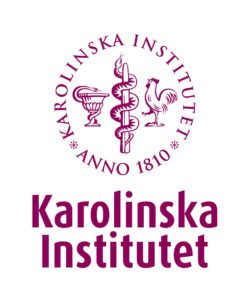
Abstract Session: Systems and Organisational Governance
Conference sub-theme: Systems and Organisational Governance
Abstract to be presented during the session:
- Healthcare governability in a network society: A multi-actor approach on leading principles for governing beyond silos
Oemar van der Woerd, MSc, Erasmus School of Health Policy & Management, The Netherlands - When the ripple effects may jeopardize healthcare system reform: the centralisation of 20 complex cancer diseases in Catalonia
Prof Joan Prades, Catalonian Cancer Strategy, Department of Health, Spain; University of Barcelona (IDIBELL), Spain - Organisational implications of hospital admissions at home for hospitals
Astrid van der Velde, PhD, Isala, The Netherlands - Lost in translation? A network organisation as intermediary in achieving health system goals.
Gijs Brouwer, MSc, Maastricht University, The Netherlands - The role of the private sector in developing the health system in Albania and governance.
Dr Qamil Dika, Sports Medicine Department/Sports University of Tirana, Albania; Department of Public Health/Medical University of Tirana, Albania
Moderated by Dr. Alexandre Lourenco, President at Portuguese Association of Hospital Managers (APAH), Portugal
Abstract Session: Value-based healthcare
Conference sub-theme: Value-based healthcare
Abstract to be presented during the session:
- Redefining Value: A Discourse Analysis on Value-Based Health Care
Gijs Steinmann, MSc, MA, Erasmus School of Health Policy & Management, The Netherlands - Change in equality of surgical fee schedule in Japan
Prof Yoshinori Nakata, Teikyo University, Japan - Does time matter? The impact of unplanned re-operations after surgical procedures on organizing operative activity
Irma Jousela, MD, PhD, Helsinki University Hospital, Finland; University of Eastern Finland, Finland - Procalcitonin: A Successful Clinical Formula in the Emergency Department?
Dr Agampodi De Thabrew, Princess Alexandra Hospital, UK - Validation of the SPF-Q, an instrument to assess the quality of production functions to achieve well-being, among multimorbid patients
Prof Dr Anna Petra Nieboer, Erasmus University Rotterdam, The Netherlands
Moderated by Prof. Federico Lega, Professor at University of Milan, Italy
Abstract Session: Advancements in digitalisation
Conference sub-theme: Digital Transformation
Abstract to be presented during the session:
- Big Data Healthcare Innovations – KPI Dashboarding to Inform Decision-making
Dr. Hilco van Elten, Erasmus School of Health Policy & Management, The Netherlands - Data Integration of Health Information Systems in Kenya
Ms Ann Chemutai, Strathmore University, Kenya; - C3-Cloud system: an innovative digital integrated care tool developed with and for multimorbid patients
Mr Dolores Verdoy, Kronikgune, Spain - Implementation of the Integrated Referral System (SISRUTE) in Indonesia: concept, challenges and progress
Mrs Nurmala Sari, Hospital Management Department, Hasanuddin University, Indonesia
Moderated by Ms Lucia Medori, Policy Officer at Health First Europe, Belgium
‘European Health Management in Transition’
Hosted by Emerald Publishing
Discover the book series ‘European Health Management in Transition’ published in alliance with EHMA under series editors Dr. Usman Khan and Prof. Federico Lega.
The series examines how changes to the HSC environment are leading to innovative and different practices in health management and provides a roadmap for managers, educators, researchers, and policy makers.
Join representatives of Emerald Publishing and learn more about publishing opportunities in this book series.
Speakers:
- Dr. Usman Khan, KU Leuven & FIPRA, Belgium
- Prof. Federico Lega, University of Milan, Italy
- Jen McCall, Emerald Publishing, UK

Day 3 – Thursday, 19 November 2020
Enjoy meditation, yoga practice and functional training
Building on value-based health care: towards a health system perspective
Hosted by European Observatory on Health Systems and Policies
Health policy makers around the world have long shown interest in the value created by health systems and this preoccupation will likely intensify in the current context of the COVID-19 pandemic and the ensuing global recession.
In this workshop we will present European Observatory’s forthcoming Policy Brief on value-based health care and argue that the existing contemporary approaches to value, such as that focusing on competing medical providers developed by Michael Porter in the USA, typically address the notion of value from the narrow viewpoint of certain actors in the system (e.g. the view of medical providers in the Porter’s approach) and/or focus on particular dimensions of value that are more relevant from their perspective. This lack of a more holistic approach, one that embraces the health system in its entirety, may detract from maximizing the total value the system could achieve.
The presenters will argue that the understanding of value should be consistent across all actors in the health system and aligned with the overarching goal of the societies – that of maximizing societal wellbeing. They will further argue that this alignment can be ensured by effective governance of the whole health system.
During the workshop Peter Smith will present our new, holistic approach to value that unifies the perspectives of all actors in the system. We will contrast this with one of the narrower approaches to value – that of Michael Porter – and show how it fails to maximise value in the health system. Anna Krohwinkel will show, drawing on the Swedish experience, the practical difficulties in its implementation. Nigel Edwards will then discuss how the new approach could be implemented from the perspective of health care providers.
Speakers:
- Nigel Edwards, Nuffield Trust England, UK
- Anna Krohwinkel, Leading Health Care Foundation, Sweden
- Peter Smith, University of York and Imperial College Business School, UK
Facilitator
- Anna Sagan, European Observatory on Health Systems and Policies, UK

Abstract Session: Healthcare organisational strategies
Conference sub-theme: Systems and Organisational Governance
Abstract to be presented during the session:
- Public accountability and independent regulatory agencies in healthcare: a critical interpretive synthesis of agencification literature
Jolien van de Sande, MSc, Erasmus School of Health Policy and Management, The Netherlands - Enabling personalized healthcare: from regulatory pressure to flexible bureaucracies
Dr Hester van de Bovenkamp, Erasmus School of Health Policy & Management, The Netherlands - Accountability in (Integrated) Health Service Delivery in The Netherlands: a scoping review
Dennis van Kerkvoorden, MSc, Hogeschool Utrecht, The Netherlands; TIAS/Tilburg University, The Netherlands - Governance dilemmas in integrated care networks
Mr Nick Zonneveld, Vilans, The Netherlands; Tilburg University / TIAS School for Business & Society, The Netherlands
Moderated by Dr. Axel Kaehne, Reader at Edge Hill University, UK
Abstract Session: COVID-19 & Health Management
Conference sub-theme: COVID-19 & Health Management
Abstract to be presented during the session:
- Transferring scientific knowledge in the COVID-19 pandemic as a non-pharmaceutical intervention: the experience of the Italian National Institute of Health (Istituto Superiore di Sanità – ISS)
Dr Aurora Angelozzi, Sapienza Università di Roma, Italy; Istituto Superiore di Sanità, Italy - Results on the risk perceptions of the Healthcare Professionals (HCPs) in the management of Covid-19 pandemic – evidence from a nationwide survey of the healthcare sector in Cyprus
Mr Chris Bachtsetzis, Center for Risk and Decision Sciences, European University Cyprus, Cyprus; University of Nicosia Medical School, Cyprus - GP care use in deprived neighbourhoods during COVID-19
Dr Paul Kocken, Erasmus School of Social and Behavioral Sciences, Erasmus University Rotterdam, The Netherlands - Crisis management during COVID-19; the experiences of nursing home directors
Prof Dr Kees Ahaus, Erasmus School of Health Policy & Management, The Netherlands - Caring for Care professionals! The effects and lessons of the COVID-19 outbreak on the well-being of nursing home staff. A qualitative interview study
Robert van Kleeff, PhD Candidate, Utrecht University, The Netherlands
Moderated by Dr. Antoni Peris, CEO, CASAP, Spain
Abstract Session: Personalisation
Conference sub-theme: Personalisation
Abstract to be presented during the session:
- Why the presentation of outcome information is indispensable in making treatment decisions for Multiple Myeloma
Dr. Mirjam Garvelink, St. Antonius Hospital, The Netherlands - The need for co-creation of care with multi-morbidity patients – a longitudinal perspective
Drs S.J. Kuipers, ESHPM, The Netherlands - Tailoring the provision of health insurance information to the literacy level of insured in the Netherlands
Drs Laurens Holst, Nivel, The Netherlands - Positive and negative ageing perceptions account for health differences between older migrant and native populations in the Netherlands
Prof. Dr. Anna Petra Nieboer, Erasmus University, The Netherlands
Moderated by Prof. Dr. Henk Nies, Director Strategy & Development, Vilans, The Netherlands
Healthcare systems challenges to managing Respiratory Syncytial Virus (RSV) infections
Hosted by Sanofi Pasteur
Respiratory Syncytial Virus (RSV) is associated with lower respiratory tract infections resulting in approximately 34 million cases each year in children less than 5 years and responsible for an estimated 160,000 deaths per year worldwide. The disease and economic burden of RSV are poorly documented and private-public partnerships are required to use existing data and generate new data in order to increase the evidence pool on RSV-related infections, as well as raise awareness on the topic for decision-makers and the general community. This session will provide a systemic and holistic overview of RSV, by presenting its risks factors, impact, and management in different settings of the health ecosystem
Speakers:
- Dr Javier Diez-Domingo, MD, Head of the Vaccine Research Department, MD paediatrician, Centre of Public Health Research of Valencia-FISABIO, Spain
- Dr. Simon Drysdale, Consultant and Honorary Senior Lecturer in paediatric infectious diseases at St George’s University Hospitals NHS Foundation Trust and St George’s, University of London, UK
- Juan José García García, MD, PhD, Head of the Pediatrics Department, Sant Joan de Deu Barcelona Children’s Hospital, Spain
- Dr. Simon Nadel, Consultant in Paediatric Intensive Care at St Mary’s Hospital and Imperial College London, UK
- Prof. Harish Nair, MBBS, PhD, FRCPE, FFPH, Chair of Paediatric Infectious Diseases and Global Health at the Centre for Global Health, Usher Institute, The University of Edinburgh, UK
Moderator:
- Prof. Federico Lega, University of Milan, Italy

Lost in translation? Health systems and innovation transfer
Hosted by TO-REACH project
European health systems continuously embark on a range of innovative strategic reforms to maintain universal quality healthcare, whilst overcoming considerable pressures, and with finite resources. The potential to learn from the many innovations across Europe is considerable. However, there is an urgent need to identify and understand what contributes to service and policy innovation, its successful implementation, and its effective adoption in other countries.
With many countries prompting reforms, there is much to be learnt from country comparison. However, drag-and-drop solutions do not always work when applied in different settings, even if addressing similar challenges. Successfully transferring of policies requires a deeper understanding of the factors that determine the success or the failure of a solution.
In this session, we will present the TO-REACH Strategic Research Agenda, which provides a European strategy to advance understanding of the adoption, implementation and potential scale-up of service and policy innovations, while also addressing their translation to other settings within and across countries.
Speakers:
- Dr. Nick Fahy, Expert adviser on innovation and implementation at the European Observatory on Health Systems and Policies; Senior Researcher at Nuffield Department of Primary Care Health Sciences; Research Fellow, Green Templeton College; University of Oxford, UK
- Dr. Johan Hansen, Senior Researcher at Nivel, The Netherlands
- Sabrina Montante, Senior Advisor for EU Affairs at the Italian National Health Service (Istituto Superiore di Sanità – ISS), Italy
- Prof. Ellen Nolte, MPH PhD, Professor of Health Services and Systems Research at London School of Hygiene and Tropical Medicine, UK
Moderator:
- George Valiotis, Interim Executive Director, EHMA

![]() The TO-REACH project has received funding from the European Union’s Horizon 2020 Research and Innovation Programme under Grant Agreement No. 733274
The TO-REACH project has received funding from the European Union’s Horizon 2020 Research and Innovation Programme under Grant Agreement No. 733274
Abstract Session: Leadership & Management
Conference sub-theme: Systems and Organisational Governance
Abstract to be presented during the session:
- Employee engagement and adaptive performance achieved by agile transformational leaders in a changing healthcare system
Prof. Sandra C. Buttigieg, University of Malta, Malta - Leveraging Management Science in the Medical Setting. The Experience of the French Military Health Service.
Dr Guillaume Cassourret, Ministry of the Armed Forces, Central Directorate of the Military Health Service, France; Val-de-Grace Academy, France - Effects of organisational change in health facilities
Dr Semiu Amosa Adekola, Idera Life Line Medical Center, Nigeria - How ‘beroepsvisitatie’ (peer-to-peer review) can contribute to developing professional healthcare executives
Sophie Bijloos, PhD, Bosman & Vos, The Netherlands
Moderated by Dr. Alexandre Lourenco, President at Portuguese Association of Hospital Managers (APAH), Portugal
Abstract Session: Sustainability & Health workforce
Conference sub-theme: Sustainability
Abstract to be presented during the session:
- Hidden Bedside Rationing and Conflicting Loyalties in the Netherlands: a Cross-Sectional Survey among Physicians in Internal Medicine
Ursula W. de Ruijter, MD, Northwest Clinics; Department of Public Health, The Netherlands - Magnet4Europe: A EU-funded cluster randomized trial of a targeted multifaceted intervention to improve clinical work environments in European Hospitals
Simon Dello, KU Leuven, Belgium - Magnet4Europe – The impact of an organizational redesign intervention on mental health outcomes of nurses and physicians in Europe
Dorothea Kohnen, KU Leuven, Belgium - Examining health workforce governance through the lens of the profession: A re-analysis of New Zealand’s primary care workforce policy actors
Dr Gareth Rees, ESAN University, Peru - Personalized care, personalized training? Challenges in tailoring nurses’ training to the meet the demands of personalized nursing home care
Dr Marieke van Wieringen, VU Amsterdam, Amsterdam, The Netherlands
Abstract Session: Value-based healthcare
Conference sub-theme: Value-based healthcare
Abstract to be presented during the session:
- Quality improvement meets mortality
Nicholas Kroll, The Princess Alexandra Hospital Trust, UK - The role of PROMs in Value-based Health Care: A Scoping Review
Dr Oskar Roemeling, University of Groningen, The Netherlands - Monitoring risk avoidance while implementing a bundled payment model
Dr Marijke Timmermans, Netherlands Heart Registry, The Netherlands - The effect of restructuring a hospital based on patient-themes on multidisciplinary cooperation
Anoek Braam MSc, Erasmus School of Health Policy and Management, The Netherlands
Special Interest Group on Governance
Hosted by Good Governance Institute (GGI)
At the EHMA 2019 Conference the Good Governance Institute (GGI) launched a Special Interest Group on governance. This year we are inviting everyone to join us in exploring good governance across Europe in more detail.
Governance underlies how organisations are run so we’d like to bring together a group of people who work in health and social care, from different specialities and roles, to continue the conversation on the changing landscape of healthcare.
The session will start with Professor Eileen Fairhurst, Chair of East Lancashire Hospitals NHS Trust, exploring what meaningful outcomes governance has brought to her organisation’s improvement journey. Eileen will then be joined by Usman Khan, Senior Advisor at FIPRA, to discuss how governance differs across Europe. There will then be the opportunity for a Q&A with both presenters and Professor Andrew Corbett-Nolan, Chief Executive of GGI.
We will then explore the Special Interest Group again in more detail, discussing a plan of action for it beyond the conference to make a difference in governance across Europe. The session will allow participants to take away learning on the meaningful outcomes of good governance, and an understanding of practices across Europe that can be applied in different settings.
Speakers:
- Prof. Dr. Eileen Fairhurst, Chair of East Lancashire Hospitals NHS Trust, UK
- Dr. Usman Khan, Visiting Professor, KU Leuven, Belgium; Senior Advisor at FIPRA, UK
- Andrew Corbett-Nolan, Chief Executive of Good Governance Institute (GGI), UK
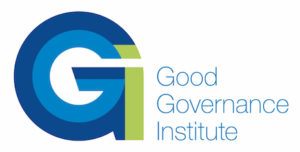
Explore the platform, connect with participants and check out the posters
Innovations that are transforming healthcare
As healthcare systems and organisations face unprecedented challenges, innovative solutions are becoming increasingly necessary to address those challenges and ensure the quality and sustainability of health systems.
Innovation can be used to increase efficiency, effectiveness, safety and affordability of healthcare, while improving prevention, diagnosis, treatment, and access. The question remains how to foster innovation among healthcare stakeholders who are already under incredible pressure. Cross-sectoral collaboration is the answer. This plenary will present you examples of how interdisciplinary teams around the world can and are transforming healthcare delivery and governance with their innovations.
The EHMAthon – the healthcare hackathon by EHMA and EIT Health: ‘Securing healthcare delivery during the next pandemic episode’
- Dr. Menno Kok – Managing Director, EIT Health Belgium-Netherlands, The Netherlands
The UNIVANTS of Healthcare ExcellenceThe UNIVANTS of HEALTHCARE EXCELLENCE program is a call to action for healthcare teams to UNIFY across disciplines in AVANTE-GARDE ways with laboratory data to achieve measurable value for patients, clinicians, payors and the entire health system. The prestigious global awards were established by Abbott in partnership with seven leading professional societies, institutions, and associations across healthcare disciplines with a common vision to inspire and celebrate healthcare excellence.
To date, the program reach has been in the millions of professionals with engaged across 141 countries. More than 100 articles have highlighted success stories across the care initiatives from winning teams, inspiring more best practices and improved healthcare across the globe.
Top winners for 2020 are revealed this week with opportunities to share and discuss your favorite best practice throughout EHMA 2020.
- Dr. Patricia Ravalico – Abbott, USA
- Prof. Federico Lega, University of Milan, Italy
Award Ceremony
- The Karolinska Medical Management Center / EHMA Research Award
The Karolinska Medical Management Center / EHMA Research Award was established to stimulate early career researches to engage in healthcare management research. Now at its 18th edition, the Award will recognise the best PhD research thesis in the field of health management. - The EHMAthon Award
Discover which of the solutions presented by the EHMAthon Teams will be awarded by the judges. - EHMA Awards for best European Paper, best non-European Paper and best Poster
